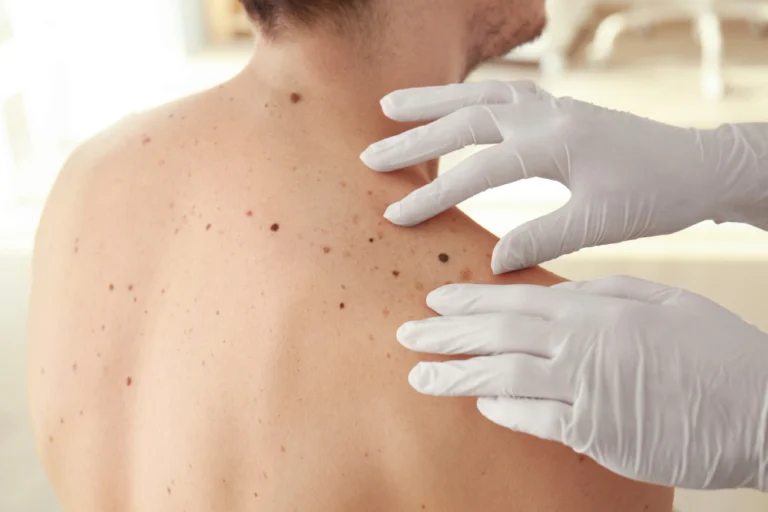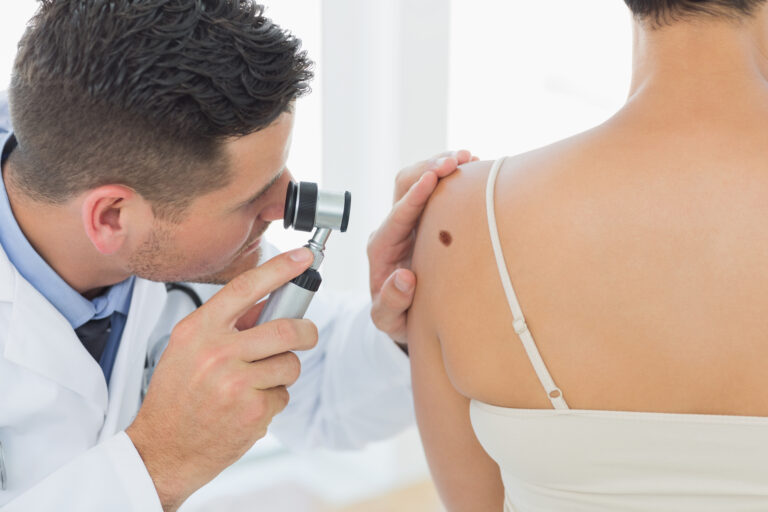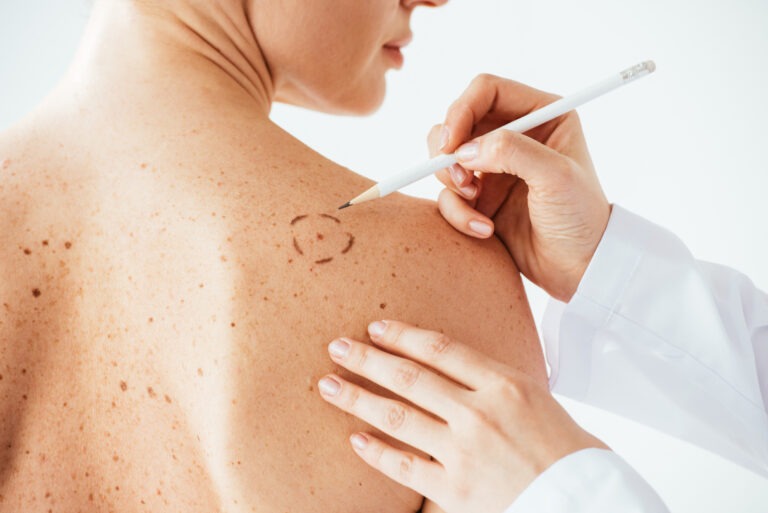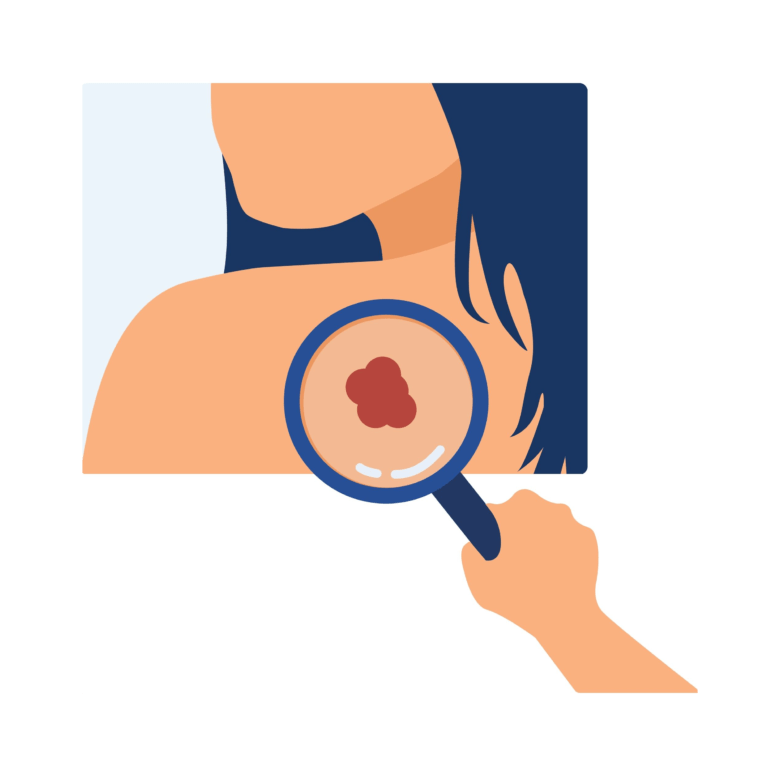Total body skin examinations are an important way to prevent the development of skin cancer. They usually take no more than 10 minutes and are part of general health maintenance. Unfortunately, with the long waits for dermatology appointments scheduling a total body skin exam as a new patient can be difficult if not impossible in some communities. Now, you can say goodbye to the overwhelming frustration and anxiety caused by months-long waiting periods for appointments. The Trillium Clinic is proudly redefining the dermatologic care model, ensuring that every patient will be seen within 14 days of requesting an appointment. Step into a new era of patient-centered care, where the agony of waiting for appointments becomes a thing of the past.
What is a full body skin exam

A full body skin examination or total body skin examination is a VISUAL inspection of your skin as a whole. It does not require a special scanner or other invasive tests. A healthcare professional will examine your scalp, face, neck, torso, arms, hands, legs, feet, and even the spaces between your toes and fingers. They may use a bright light and sometimes a magnifying lens to get a closer look at specific areas. If any areas are concerning they may suggest a biopsy or other treatment.
Does a total body skin exam require any preparation

Before the exam, it’s important to remove all clothing and jewelry, as the healthcare professional needs to examine the entire body surface. You may be provided with a gown or a sheet to cover yourself during the exam.
How is a total body skin examination performed

The healthcare professional will systematically examine each area of your body, looking for any suspicious lesions or changes in your skin. They will examine moles, freckles, birthmarks, and any other skin abnormalities. During the exam, the healthcare professional may use their hands to feel for any lumps, bumps, or irregularities on your skin. This tactile examination helps them assess the texture and thickness of the skin. Throughout the exam, the healthcare professional may ask you questions about your medical history, any symptoms you may have experienced, or any specific concerns you have about your skin. This information helps them better evaluate your skin and make appropriate recommendations. The healthcare professional may take notes or use a body map to document the location, size, and characteristics of any abnormal findings. This documentation allows for proper monitoring and comparison during future exams.
What happens after a total body skin examination

After the exam, the healthcare professional will discuss their findings with you. If any suspicious or concerning lesions are identified, they may recommend further evaluation, such as a biopsy, to determine if they are cancerous or require treatment. They may also provide advice on sun protection, skin care, and self-examination techniques for early detection of skin abnormalities.
Embark on your journey
It’s important to note that a full body skin exam is a proactive measure to detect early signs of skin cancer or other skin conditions. It can provide peace of mind and contribute to the overall health of your skin. If you have specific concerns or notice any changes in your skin between exams, call us or self-schedule an appointment here. As experts in the detection and treatment of skin cancer, we invite patients from Chapel Hill, Carrboro, Raleigh, Hillsborough, Pittsboro, Mebane, Durham, Burlington, Cary, Holly Springs and surrounding cities to see the Trillium Clinic as a resource for all of their skin care needs. We are here to support your goals of skin health. Do not put off your total body skin exam any longer!

